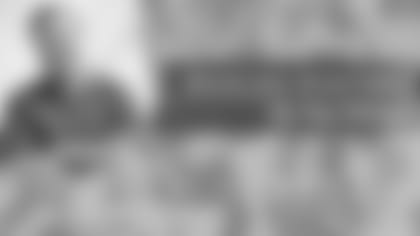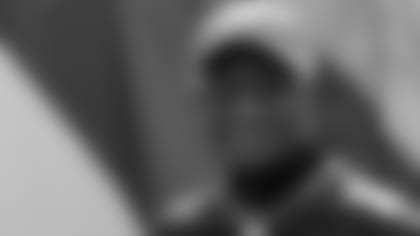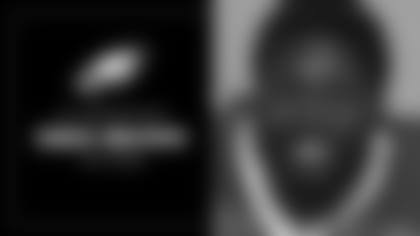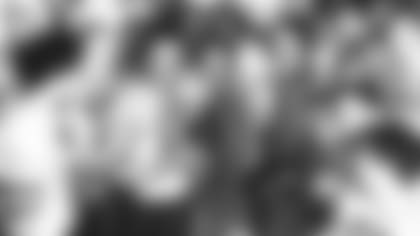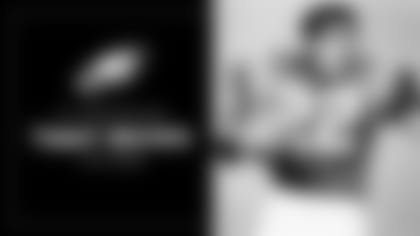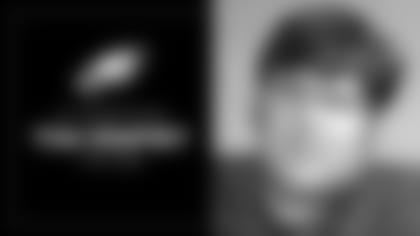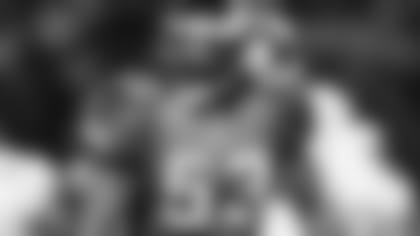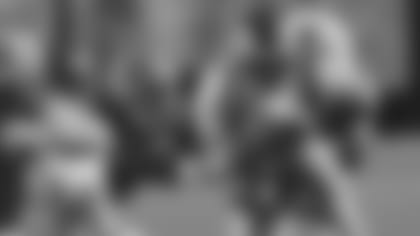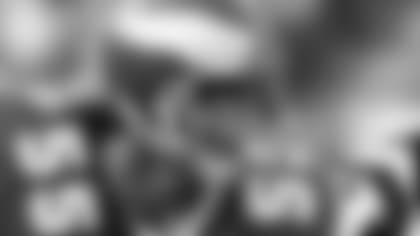
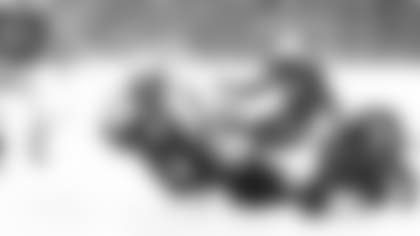
*This story appears in the December 20 edition of Gameday Magazine, which can be found at select ACME Markets and the Eagles Pro Shop at Lincoln Financial Field.
It was another December day in Philadelphia - December 19, 1948, to be exact - when the Eagles and Cardinals met in a game that is now part of football legend. It was played in Shibe Park and the Cardinals were then the Chicago Cardinals, so a lot has changed since then. But when the two teams meet Sunday at Lincoln Financial Field, the 1948 game will provide a fascinating backdrop.
On that day, the Eagles won their first NFL Championship and in the process dethroned the Cardinals who had beaten them in the title game the previous year. The Cardinals have not won an NFL championship since then while moving the franchise from Chicago to St. Louis and now Arizona. This season the Cardinals feel they have their best chance in many years to end that drought, but now they face another December trip to Philadelphia.
The 1948 game was known as The Blizzard Bowl. The snow started in the morning and continued all day. More than a foot of snow fell across the city. Syndicated columnist Jimmy Cannon rode the train from New York to Philadelphia that morning. He walked from North Philadelphia station to Shibe Park at 21st and Lehigh although he felt sure the game would be called off. He did not see any way Commissioner Bert Bell would allow a championship game to be played under such conditions.
"The majority of (the fans) walked through the narrow streets in the storm," Cannon wrote. "It was not like a football crowd at all. A lot of the guys were dressed as though they were going hunting. They wore plaid caps and earmuffs, high-laced boots, and the women carried blankets and used them as capes for the long slippery pilgrimage to the ballpark. Outside the gates, guys were giving away tickets. People would accept these and compare them with the tickets they had to see if they offered better protection from the storm."
But Bell, a Penn grad and original owner of the Eagles, was determined to play. The game was a sellout, the network radio rights were sold and, as Bell pointed out, "It's football." In other words, weather doesn't matter.
There was only one problem. Steve Van Buren, the Eagles' great halfback, didn't get the memo. He looked out the window that morning, saw the snow coming down and went back to bed. Like Cannon, he assumed the game would be postponed. He was awakened by a phone call from head coach Greasy Neale who wanted to make sure Van Buren was on his way.
"I thought Greasy was crazy," Van Buren said. "I said, 'We can't play in this.' He said, 'I just talked to Bell. We're playing.'"
Van Buren could not get his car out of the driveway so he took public transportation - a bus to 69th Street, a trolley to City Hall and the Broad Street Subway to North Philadelphia - then walked seven blocks through knee-deep snow to the park.
The game was scoreless after three quarters, but Frank (Bucko) Kilroy and Alex Wojciechowicz hit Chicago quarterback Ray Mallouf and forced a fumble which Kilroy recovered at the 17-yard line. Four plays later, Thompson handed off to Van Buren who followed the blocks of Kilroy, Al Wistert and Joe Muha into the end zone for the game's first and only touchdown.
"I ended up with my head down in the snow, but it was one of the easiest touchdowns I ever scored," Van Buren said. "They opened a big hole. I think only one guy touched me."
Cliff Patton kicked the extra point and the defense did the rest securing a 7-0 victory and the Eagles' first NFL Championship. When the final gun sounded many of the 28,864 fans poured onto the field and carried Van Buren off on their shoulders.
"The feeling in the locker room was tremendous," said Van Buren, who was the first Eagle inducted into the Pro Football Hall of Fame in 1965. "Even old Greasy was choked up."
An award-winning writer and producer, Ray Didinger was inducted into the Pro Football Hall of Fame in 1995. He has also won six Emmy Awards for his work as a writer and producer at NFL Films. The five-time Pennsylvania Sportswriter of the Year is a writer and analyst for Comcast SportsNet. Didinger will provide Eagles fans a unique historical perspective on the team throughout the year for PhiladelphiaEagles.com. You can read all of his Eagles History columns here. He is also the author of The New Eagles Encyclopedia.



